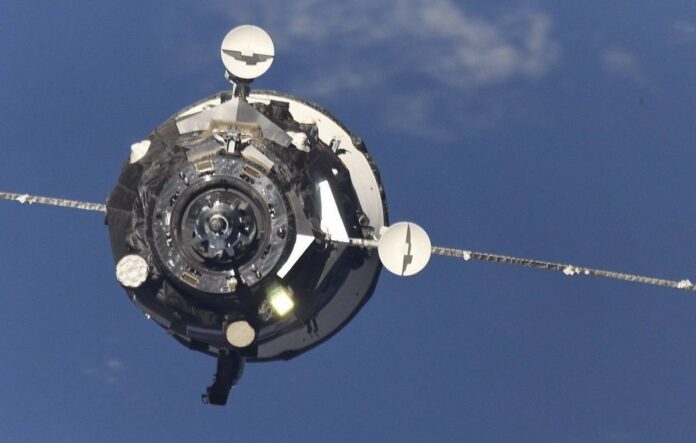MOSCOW, February 21. /TASS/. The Progress MS-21 space freighter that experienced a coolant leak had a 12mm hole, Russia’s State Space Corporation Roscosmos reported on Tuesday.”The hole in the radiator was about 12 mm in its diameter,” Roscosmos said in a statement on its Telegram channel.On February 11, the Progress MS-21 cargo spacecraft experienced a coolant leak while the space freighter was preparing for its undocking from the International Space Station (ISS). The resupply ship that was expected to end its flight within the ISS on February 18 experienced a depressurization of its coolant loop. The space freighter was isolated from the orbital outpost for safety purposes. Roscosmos Chief Yury Borisov said that a special commission had been set up to look into the causes of the incident. Later, specialists came to the conclusion that an external impact from space was the likely cause of the anomaly.The Progress MS-21 cargo craft undocked from the ISS at 5:26 a.m. Moscow time on February 18. After its undocking, Roscosmos cosmonauts turned the space freighter around in remote control mode to make photos and a video of the potential damage spot. Following this, the remote control mode was switched off and the resupply ship continued its space flight. Ground specialists found no external damage on the Progress MS-21 space freighter and the commission made a decision to delay its deorbiting and dump it in the non-navigable part of the Pacific Ocean on February 19.An external impact is the likely cause of the coolant leak aboard the Progress MS-21 space freighter that was dumped in the Pacific Ocean on February 19, Roscosmos announced.”According to preliminary data of the Energia Space Rocket Corporation (part of Roscosmos), the Progress MS-21, like the Soyuz MS-22 earlier, experienced an external impact,” the statement reads.Roscosmos specialists made these conclusions after analyzing the photos made after the space freighter undocked from the ISS. The photos reveal changes on the resupply ship’s exterior, including the radiator in its equipment module and solar arrays, the space agency specified.”They revealed the holes that were not registered either during the manufacture of the Progress MS-21 at the factory or at the time of the preparations for its launch at the Baikonur spaceport or during the spaceship’s flight and docking with the ISS,” Roscosmos stressed.

